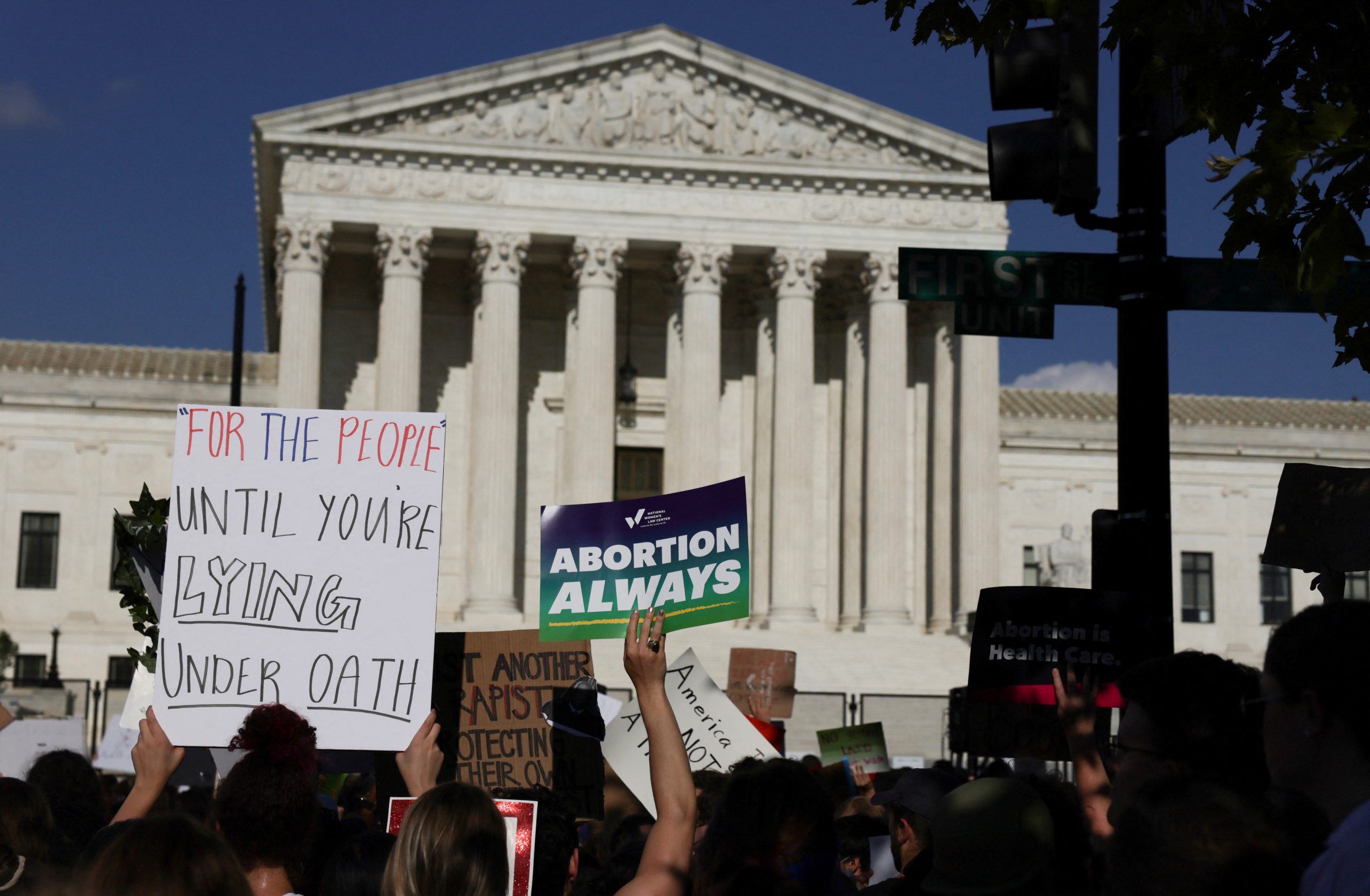
[elfsight_social_share_buttons id=”1″]
On June 24, Americans will mark the anniversary of one year since the Supreme Court vacated the Roe v. Wade decision.
Originally implemented in 1973 but never cemented into law, the decision federally protected abortion access nationwide. That is, until it was challenged in another Supreme Court case known as Dobbs v. Jackson Women’s Health Organization.
Now that the Roe decision has been removed, how is the nation faring when it comes to legislation on the issue? With the decision left to the states, the results vary.
Many Republican-led or -leaning states are obviously more prone to protect the lives of unborn children. States like Alabama and Arkansas had so-called “trigger laws” which went into effect immediately after Roe v. Wade was overturned. These laws outright banned abortions with certain, limited exceptions.
Other states have a cut-off date in the pregnancy for abortion services, lasting anywhere from 6 weeks – known as a “heartbeat bill” – to somewhere in the 24–26-week range – known as “fetal viability.”
Life News reports that 25 states have laws that ban abortion at a maximum of 12 weeks.
On the other hand, Democrat-led and -leaning states are more apt to protect abortion services. Noteworthy Democrat strongholds like California, New York, and Oregon have some of the most open abortion laws in the nation, and indeed the world.
California notably has a law which also prevents other states investigating abortion providers, should someone from another state travel to California for abortion services.
States have also had to deal with services linked to abortions – such as contraceptives and abortion pills. The latter issue has been traversing the court system especially recently, and currently rests in a federal appeals court.
Wyoming made headlines as the first state to outright ban the pill, but this ban was recently blocked by a state judge.
So, among the states, abortion is and will be a confusing and complicated issue. While bans or abortion protections go in place, lawsuits and court decisions are constantly cropping up and changing the landscape in each respective state.
But the federal government isn’t totally out of the picture yet, either.
In fact, President Joe Biden on Friday signed an executive order which aimed to boost the availability and accessibility of contraceptives throughout the nation. This includes “emergency” over-the-counter contraception.
The House of Representatives and Senate will likely be taking the issue up on their respective floors as well, since abortion continues to be an important consideration for many Americans.
On that note, it is important to mention that the pro-life movement has gained tremendous ground in the past year.
Even just this past month, our partners over at Pre-Born were able to break records in their first Mother’s Day campaign since the overturning of Roe v. Wade.
The Society of Family Planning also reported earlier this month that nearly 25,000 babies had been saved since last year – an incredible feat and blessing.
